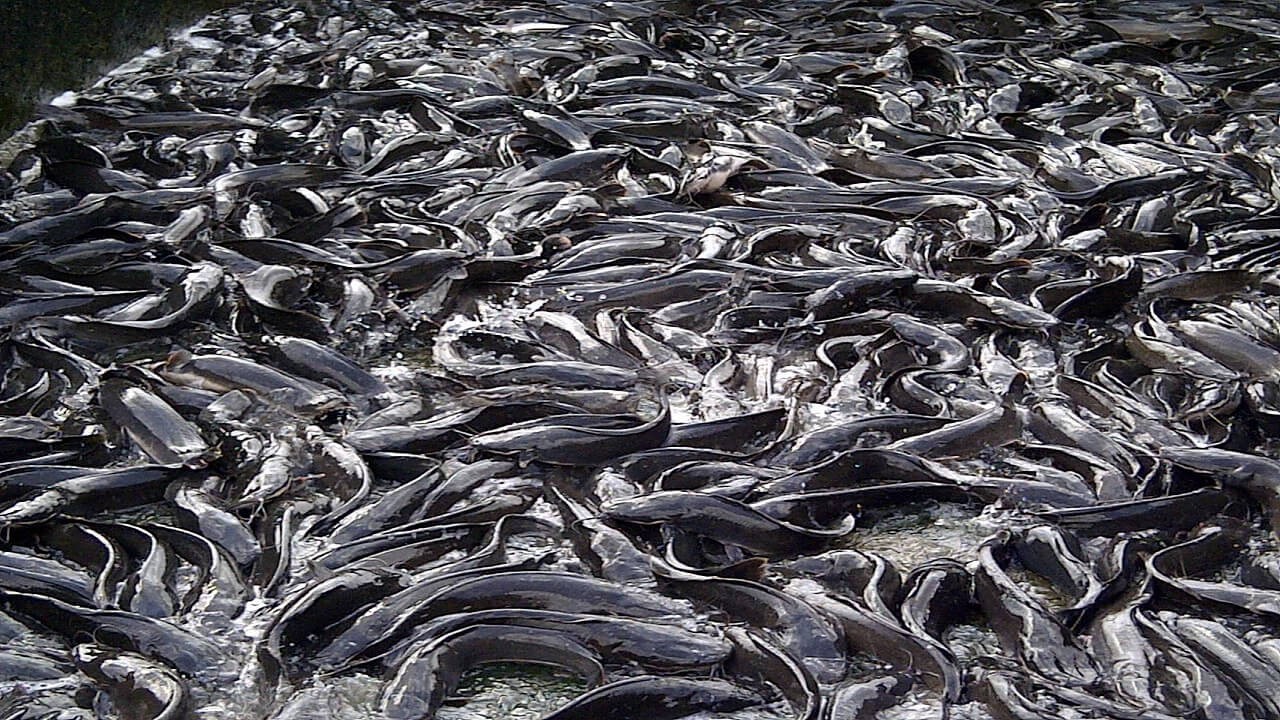
Animal Farming Success Tips
January 23, 2018, 12:13 pm
In order to raise farm animals (poultry, catfish, pigs, cow, goats etc.) profitably and productively, you must feed them properly.
Animal Farming Success Tips
Proper feeding is a very important factor for success in animal farming. Proper feeding of farm animals achieves the following:
- Supply of energy to the body
- Produce resistance to diseases
- Maintenance of body activities like blood circulation, respiration, etc.
- Provision of body nutrients needed for growth
- Production of milk, egg, meat and fat
- Production of hair, skeleton and muscles
- Restoration of tissues and building of new tissues
- Maintenance of body temperature
In other for farm animals to be properly fed, the animal feed given to them must contain the essential nutrients and minerals their bodies require for proper growth, health and vitality. The major classes of nutrients required in animal feed are: Carbohydrate, Protein, Fats and Oil, Fibers, Minerals and Vitamins. The roles these nutrients play in animal feed are described below:
Carbohydrate
Carbohydrates are energy-giving feed components. They are a large group of organic compounds and composed of carbon, hydrogen and oxygen.
Carbohydrates are needed in animal feed for milk secretion, energy, muscle growth and nerve activity etc.
Sources of carbohydrates that can be used in animal feed are maize (yellow and white), wheat, sorghum, millet, yam and sweet potato peelings, cassava etc. Shown below is Whole Wheat, a good source of carbohydrates in animal feed.
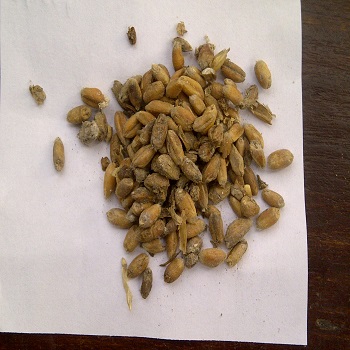
Protein
Proteins are a class of complex nitrogenous organic compounds which are important to all farm animals. Proteins contain carbon, hydrogen, oxygen and nitrogen.
Proteins are needed in animal feed for formation of milk and egg, repair and maintenance of worn out body tissues, flesh building, proper functioning of cells, disease prevention, boosting reproduction etc.
Sources of proteins that can be used in animal feed are cashew nut, soya bean, cotton seed, maggots, fish meal, blood meal, eggs, meat, etc. Shown below is Soya Meal, a very good source of protien in animal feed.
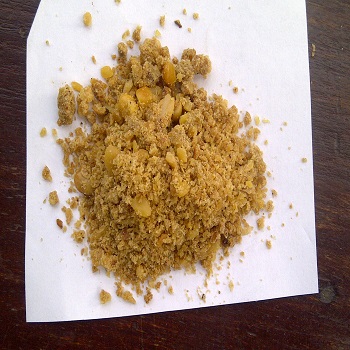
Fats and Oil
Fats and oils are natural organic compounds which occur in plants and animals and serve as storage materials. They are also referred to as lipids.
Fats and oils are needed in animal feed because they are sources of energy for the muscles, provide essential fatty acids, aid in digestion, body insulation etc.
Sources of fats and oils that can be used in animal feed are vegetable oils (soya bean, groundnut, palm kernel) and animal fats (lard, poultry offal etc.). Shown below is Chadian Groundnut Cake (GNC), a very good source of fats and oil in animal feed.
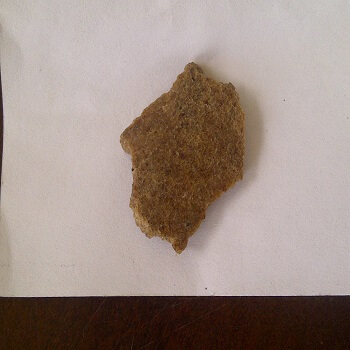
Fiber
Fibers are also called roughages and they are the indigestible and more insoluble portion of plants. Fibers consist of hemicelluloses, celluloses and pentosans.
Fibers are needed in animal feed, especially for ruminant animals (cattle, sheep, goats etc.) because they provide bulk and so enhance bowel movement and prevent constipation. They also provide energy and assist in rumination.
Sources of fibers for animal feeds are grasses, legumes, wheat offal, rice offal etc.
Minerals
Minerals are the inorganic matter of animal feed and they make up about 3% of the animal’s body. There are two types of minerals: Macro or Major Minerals (calcium, phosphorous, sodium, chlorine, magnesium etc.) and Micro or Minor Minerals (Iron, Copper, Zinc, Selenium, Iodine etc.)
Minerals are needed in animal feed for blood formation, digestion of food, regulating chemical reactions in the body, bone formation etc.
Sources of minerals for animal feeds are table salt, fish meal, oyster shells, DCP (dicalcium phosphate), bone meal etc.
Vitamins
Vitamins are a group of organic substances. There are two types of vitamins: Fat soluble vitamins (vitamins A, D, E and K) and Water soluble vitamins (vitamins B and C).
Vitamins are required in small amounts in animal feed but their absence or shortage leads to various diseases. Vitamins are needed for growth, fertility enhancement, egg formation, tissue building etc.
Source of vitamins for animal feeds are soya bean, cod liver oil, palm oil, cotton seed, fish meal etc.
How to feed farm animals properly
As a farmer, you have two options available to you for feeding your farm animals:
OPTION 1
You can purchase already prepared and packaged animal feed from trusted or renowned animal feed companies. Companies like Flour Mills, Animal Care etc. prepare and sell packaged livestock feed used for raising poultry, catfishes, dogs, pigs, etc.
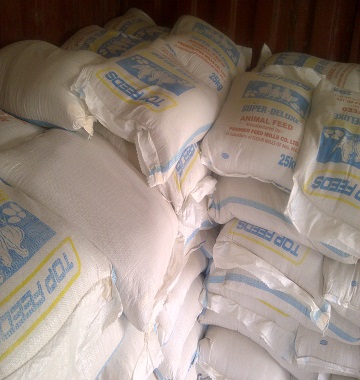
The primary disadvantage of this option is cost. Packaged animal feed are usually expensive. The convenience you get from feeding your farm animals with packaged feed is offset by the high prices you will pay for the feed.
Another disadvantage of this option is control. You have no say over what ingredients and ingredient mix and composition that goes into the manufacturing of the feed. While the manufacturers of packaged livestock feed go to great lengths to source for quality ingredients and spend huge amounts of money researching the best diets for farm animals according to their age and growth, what they eventually produce may not be ideal for your particular situation and the developmental condition of your farm animals.
This option doesn’t give you the flexibility and control of manipulating the ingredients used to prepare your livestock feed based on how they are performing in real time. That being said, feeding your livestock with packaged feed is very convenient and stress free. The headache of sourcing ingredients and preparing the feeds has been outsourced to the animal feed manufacturer which allows you to focus your energy on other areas of your animal farming business.
OPTION 2
You can prepare the feed you use in raising your farm animals by yourself. This option allows you to determine the ingredients that go into the production of your animal feed. With this option, what your farm animals feed on or eat is more relevant to their development and growth needs.
As you observe the performance and health of your farm animals, you can better prepare feeds that will be more effective in boosting their health and performance. The major disadvantage of this option is affordability.
Preparing your animal feed by yourself is significantly cheaper than buying packaged animal feed. However, this trade off in cost comes with a burden. You will have to bear the responsibility of sourcing quality ingredients and also be responsible for overseeing the processing of these ingredients and converting them into a form that your farm animals can eat. Shown below is a local animal feed production facility.
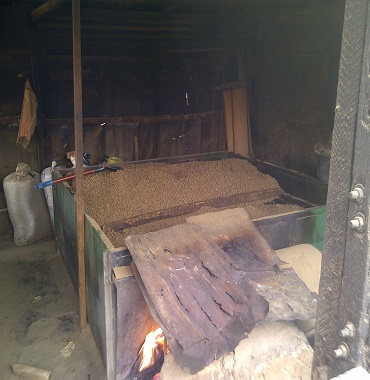
If you decide to produce your animals’ feed, you should know that the raw materials used in preparing animal feed often get contaminated or depreciated in the course of being processed. That is why substances called Premixes are usually added to animal feed. Premixes are ingredients added in small quantities that are used in animal feed production. Premixes are a combination formula of animal feed additive and other key nutrition factors for animal feed.
There are several types of premixes such as multivitamins, minerals, acidifiers, toxin binders. Premixes perform different functions in the animal feed. For example, premixes like acidifiers and toxin binders are added to animal feed to make them safe for consumption while premixes like multivitamins and minerals are added to animal feed to make it more nutritious. Also, enzymes premixes are added to animal feed to increase the absorption and utilization rate of feed and to reduce the pollution of fecal matter to the environment.
The cost savings and control over what your farm animals eats makes the stress and headache of overseeing the production of your animal feed worthwhile.
Which Animal Feed option is ideal for you?
It all depends on the amount of control you want over what goes into the feed your farm animal consumes and the overall cost of raising your farm animals. For instance, if cost is not an issue for you and if you can’t deal with the stress of buying animal feed ingredients then you should feed your farm animals with manufactured feed. There are many good animal feed companies out there producing quality animal feeds.
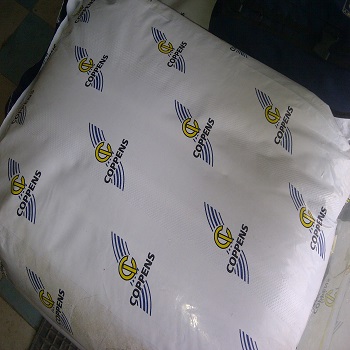
However, if you want to maintain a tight control over the cost of raising your animals and you don’t mind the stress of buying and processing feed ingredients, then you should prepare your own animal feed.
Another important factor to consider is the number of animals you are raising on your farm. If you have a very large number of animals on your farm, it makes economic sense for you to produce the feed your farm animals will consume.
To learn more tips and strategies for animal farming success, click here to subscribe and watch our Animal Health videos.
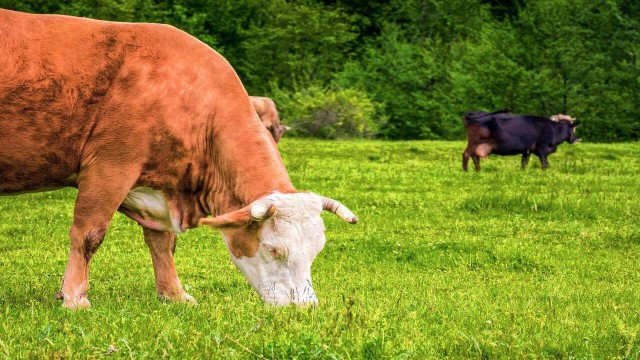
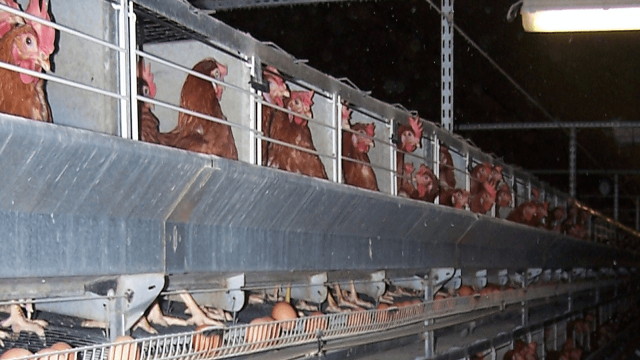
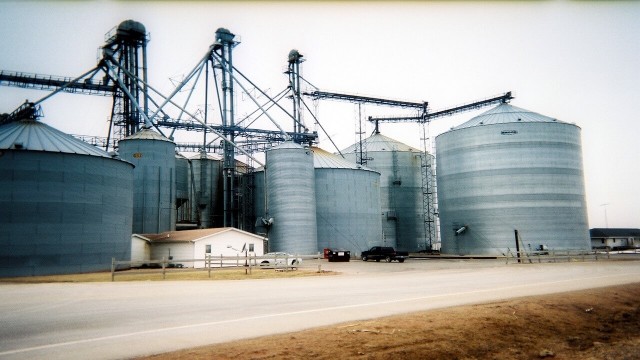
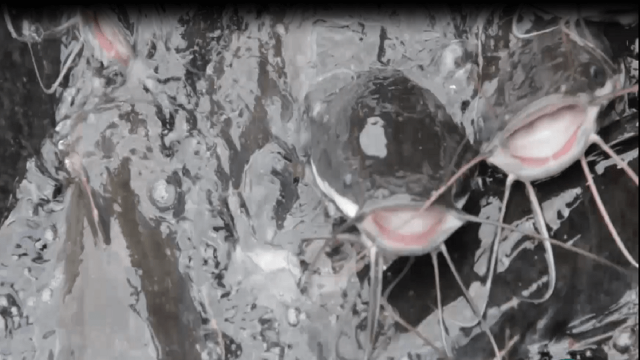
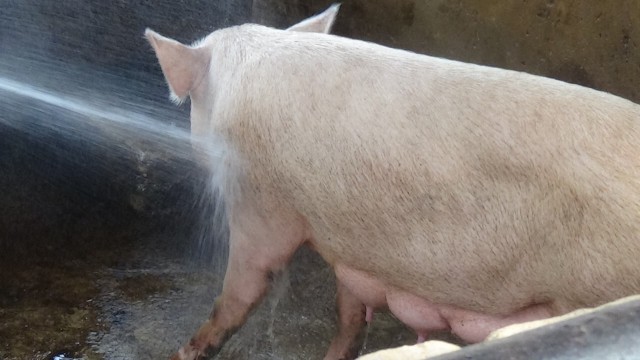
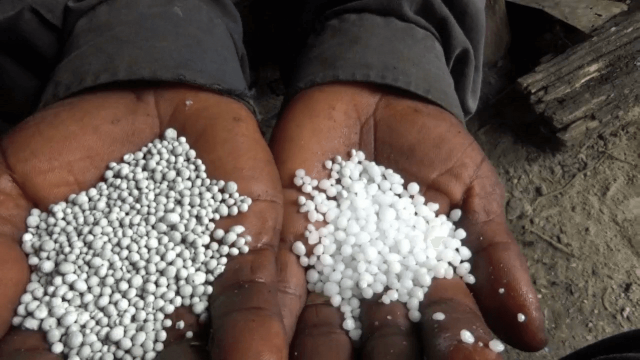
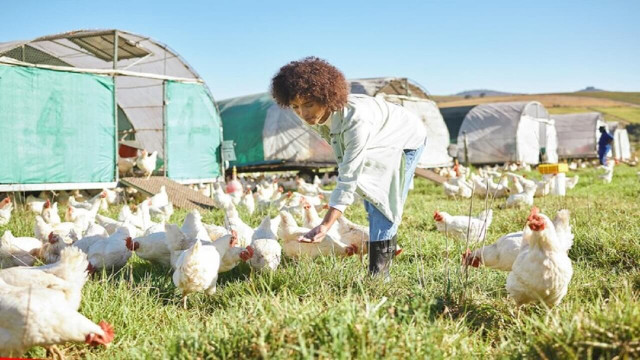



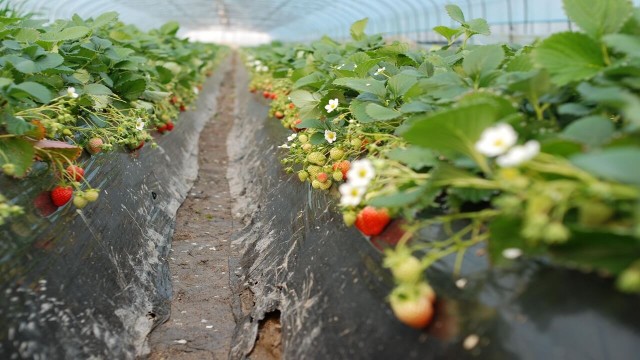
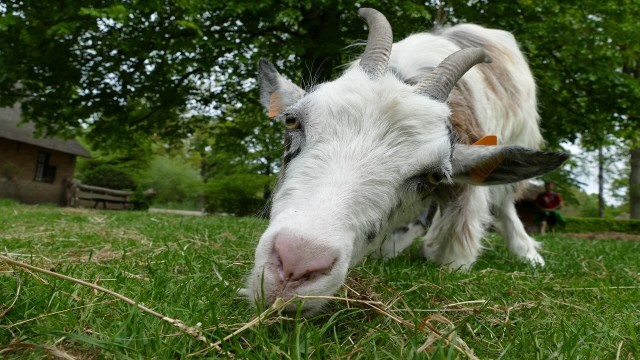
Share This Article: